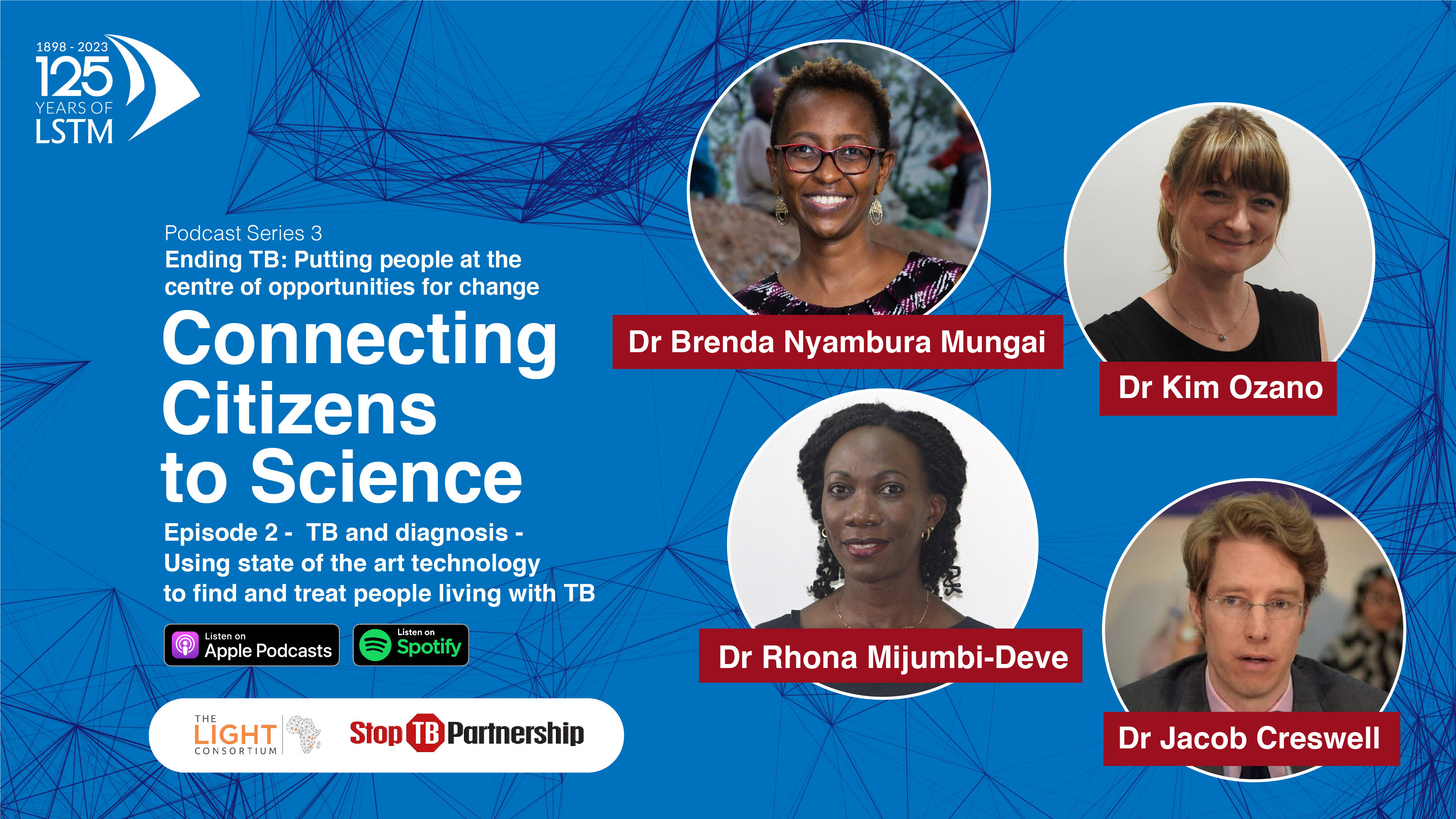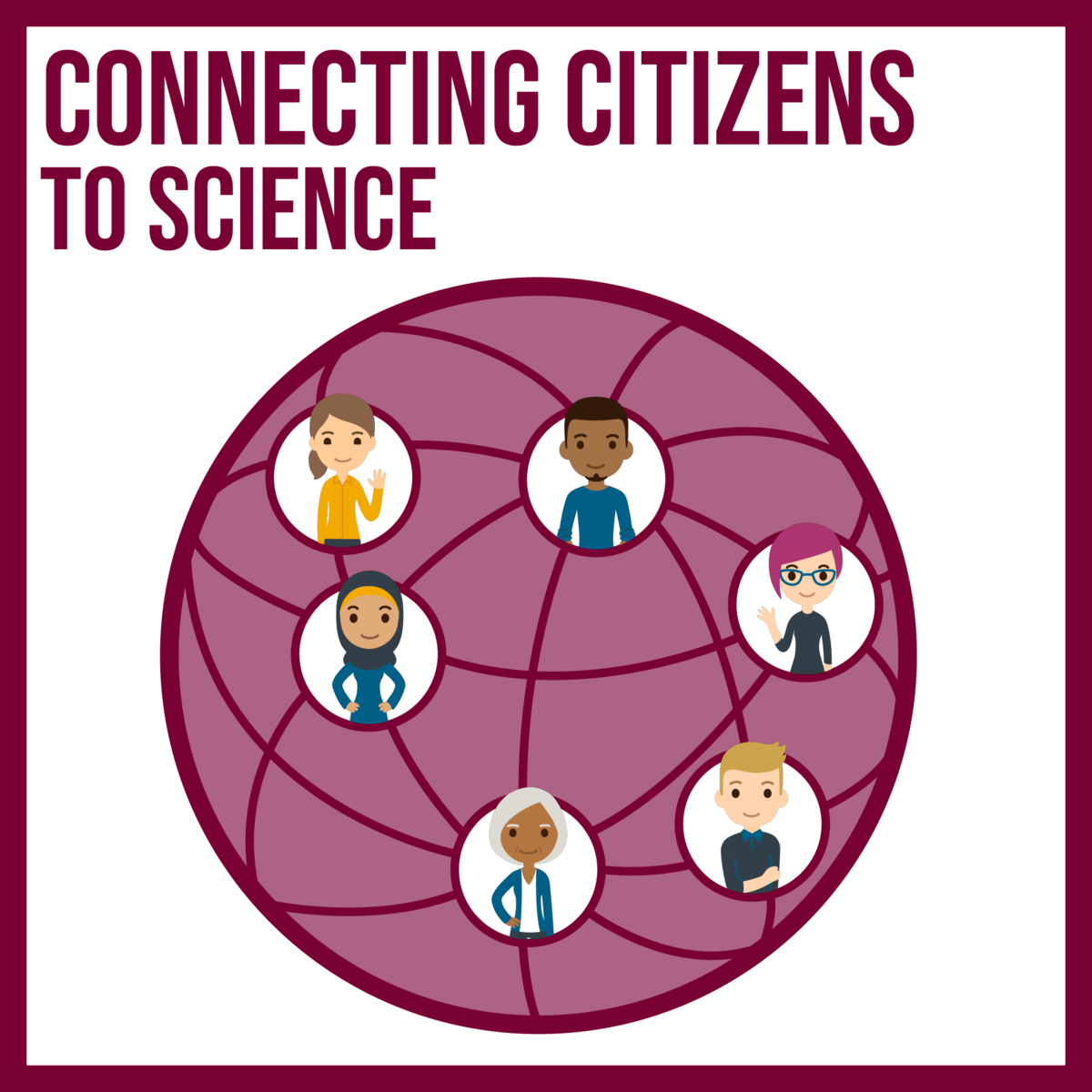
Welcome to the connecting citizens to science podcast, in this month’s series we have been ‘in conversation with’ global experts on the current challenges facing the local to global TB response.
We have already learned that Prior to COVID-19, tuberculosis though curable and preventable, was the leading cause of death by a single infectious agent. Research has shown that early detection in communities can significantly reduce the risk of negative treatment outcomes and long term health impacts that can result from having TB. It can also prevent the devastating social and economic consequences of TB for people and their families as we heard in last weeks episode when we talked about gender. Having community friendly TB screening has potential to reduce risk of TB transmission in a household, workplace, school or other community setting by removing and treating infectious people, thus reducing risk to others. This is really important that we connect with communities to reduce the incidence and prevalence of TB. In this podcast, we will hear about the influence technology and artificial intelligence for TB screening to ensure early diagnosis and treatment both in health facilities but also in communities.
My co-host for this month is Dr Rhona Mijumbi, Senior Lecturer of Public Policy at the Liverpool School of Tropical Medicine welcome Rhona.
This episode’s guests are Jacob Creswell and Brenda Mungai who will be talking about using artificial intelligence to help identify the millions of people with TB who are missed by the healthcare system every year.
Dr. Jacob Creswell is Head of Innovations & Grants at the Stop TB Partnership. He coordinates the TB REACH initiative which is focused on improving programmatic aspects of tuberculosis case detection and treatment outcomes. He serves as a global expert on different aspects of improving tuberculosis case detection including private sector engagement and active case finding. Jacob is currently working on the introduction of new diagnostic and screening tools for TB including artificial intelligence and how they can fit into more efficient and effective diagnostic algorithms. Jacob has published more than 80 scientific publication and has over 20 years of experience working at Stop TB, WHO and CDC on TB and HIV.
Dr Brenda Nyambura Mungai PhD candidate, LSTM. Director of Tuberculosis and Lung Health Centre for Health Solutions-Kenya
A medical doctor Bachelor’s degree of Medicine and Surgery (University of Nairobi) with a postgraduate diploma in HIV management (Colleges of Medicine South Africa) and a Masters in Tropical Medicine and Infectious Diseases (Liverpool, United Kingdom). She has over fifteen years national and international professional experience in clinical care and public health approaches to management of infectious diseases especially in TB/ HIV in developing countries. Currently pursuing a PhD in Global Health at Liverpool School of Tropical Medicine focusing on operational modelling, and the role of chest X-ray and computer-aided detection software in tuberculosis screening in low -and lower-middle income countries.

This is a podcast in the series: Connecting Citizens to Science, which focuses on health research based on equitable partnerships between researchers and communities.